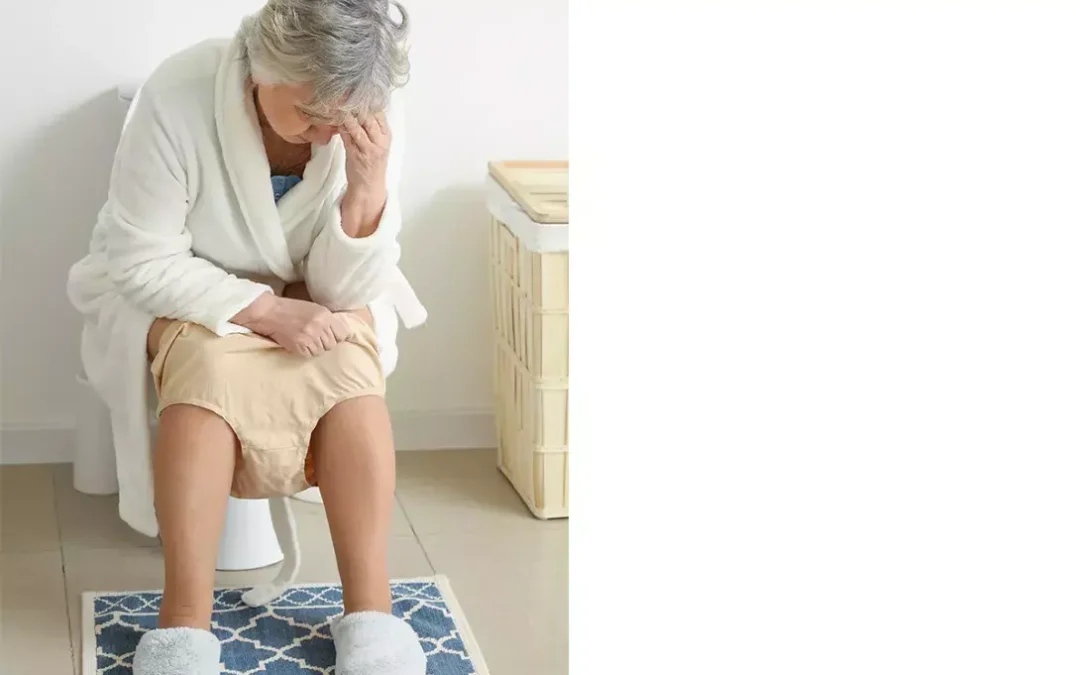When is Constipation Dangerous? How Urgent Care Can Help
Not being able to go to the bathroom when you feel the urge is frustrating. We’ve all experienced it at some time, but when is constipation dangerous? Though rare, constipation can require medical treatment, such as a visit to urgent care.
Knowing when constipation needs to be evaluated by a medical professional and how to care for your symptoms at home is important. This article will discuss some common causes of constipation, what you can do to find relief, and when you should seek care.
What Causes Constipation?
Constipation, or feeling like your stool is “backed up,” can happen for many reasons, including your diet, medications, and lifestyle. Certain illnesses or medical conditions can also cause constipation.
Some of the most common causes of constipation in adults include:
- Dehydration: Not having enough fluids can make your stool dry and hard, which makes passing it more difficult.
- Inactive Lifestyle: Not exercising or moving enough throughout the day can contribute to constipation because movement helps your body move stool through the intestines.
- Age: As you get older, your digestive system naturally slows down, which can lead to constipation.
- Medication: Certain medicines, like opioid pain relievers, antidepressants, and drugs for high blood pressure, often list constipation as a side effect.
- Diet: Not getting enough fiber or consuming too many processed and high-fat foods can cause constipation.
- Irritable Bowel Syndrome: Most people assume irritable bowel syndrome (IBS) causes diarrhea. While this is true, IBS can also cause constipation.
- Pregnancy: During pregnancy, many women have constipation due to an increase in the hormone progesterone, which slows down the intestines.
Symptoms of Constipation
Many people think constipation is as simple as not being able to have a bowel movement. However, the other symptoms of constipation are often overlooked. You can still have constipation even if you’re passing stool.
Constipation often happens with symptoms like:
- Fewer than three bowel movements per week
- Hard, dry stool that is difficult to pass
- Needing to strain to have a bowel movement
- Pain when passing stools
- Feeling like you need to go but not being able to
- Needing to use medication like a stool softener or an enema to have a bowel movement
How to Manage Constipation at Home
Fortunately, constipation can often be managed at home with great success. This is especially true when the cause is related to dehydration or your diet. Changing these factors typically leads to relief in a matter of days, if not hours.
Drinking more water is one of the best ways to relieve constipation at home. An extra two or three glasses per day can help soften your stool and make it easier to pass. You should also avoid caffeine and alcohol as these can dehydrate you further.
Adding fiber to your diet is another great way to ease your constipation. Whole fruits, vegetables, and whole grains are high in fiber. Consider reaching for prunes, bran cereal, mangos, and oatmeal. Along with this, avoid highly processed foods like lunch meat, white bread, and foods high in fat.
Moving your body can also help relieve constipation at home. Exercise promotes movement in your gut and makes passing stool easier. You can also use a footstool to raise your feet while sitting on the toilet or squat instead of sitting to help make a bowel movement easier.
When to Seek Care for Constipation
Mild constipation is common and can usually be cared for at home. However, in some cases, constipation can become more serious and require medical attention.
If constipation is accompanied by blood in the stool, severe abdominal pain, or vomiting, it may be a sign that something else is wrong. These symptoms could indicate conditions like a bowel obstruction, appendicitis, or intestinal bleeding. If you or a loved one are experiencing these symptoms, you should seek medical care immediately.
A medical provider will thoroughly assess your symptoms and history. They can also order lab tests or scans to determine the cause of your constipation.
If left untreated, severe constipation can lead to complications. These include hemorrhoids, damage to your pelvic floor muscles, infection, or fecal impaction (when too much stool blocks your rectum). Prompt diagnosis and treatment by a medical professional helps you find relief from constipation and avoid these dangerous complications.
Velocity Urgent Care is Here to Help
Let Velocity Urgent Care help you find relief if you’re struggling with constipation. Urgent care is often much faster than waiting for an appointment with your primary care provider and far cheaper than a trip to the emergency room.
A Velocity Urgent Care provider will investigate your symptoms and prescribe the right treatment to ease your constipation and help you feel better.
When you need relief, stop in at any of our conveniently located clinics across Virginia or make an appointment with our online registration portal to skip the waiting room. We even offer text message updates so you can wait in the car (if you prefer) until it’s time for your appointment.
We’ve put strict sterilization protocols into place and are carefully handling patients who may be contagious to ensure each of our clinics is safe for those who need urgent medical care or occupational health services.
Velocity Urgent Care is an in-network provider for most major insurance plans, meaning you can be seen for the cost of your co-pay and deductible.
All our locations also accept Medicare, Medicaid, and Tricare. Veterans Administration beneficiaries are also welcome.
To learn more about our services, locations, hours, and more, visit www.velocityuc.com.

